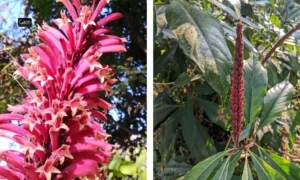Coimbatore, Tamil Nadu
When I joined Gaon Connection in 2020, I thought my role in it was just to ensure all the i’s are dotted and the t’s crossed. I was the ‘desk’. I came into the organisation with a very different kind of journalism background, most of it about urban lifestyle. I knew less than nothing about rural India.
But all that changed as I edited reports from different corners of the country. About farmers, weavers, craftspeople, dairyists, cattle breeders, traders, mandis, about forests and water, deserts and mountains…
My job led me to places I did not even know existed. While all this journeying happened on paper, voyeuristically, as I edited copy, Nidhi Jamwal, managing editor of Gaon Connection and my boss, decided I should also file some reports. She sent me on assignments for which I will forever be grateful.
Also Read: Signing off from 2022
I went on a blissful Kabir Yatra to villages in Rajasthan, to Kotda and Phalasia in Udaipur district and Kumbalgarh in Rajsamand district.
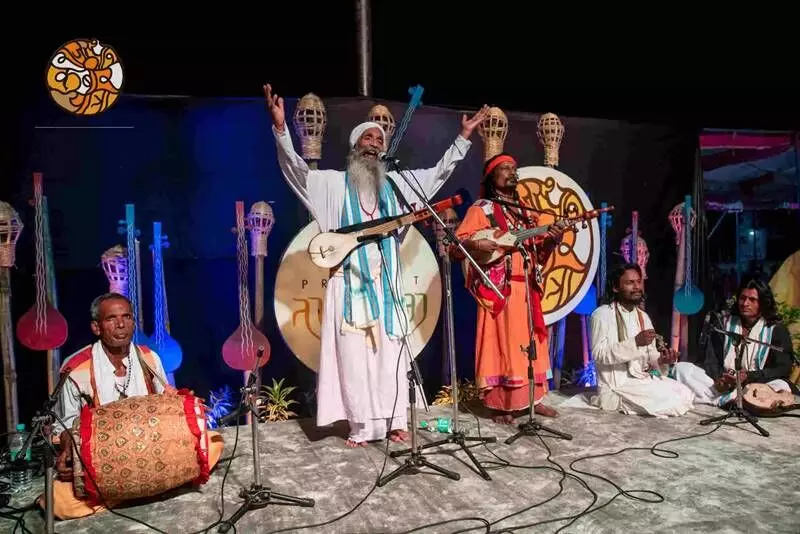
The stalwarts of the folk traditions followed the local artistes, the men all in colourful turbans.
I watched drones over sunflower fields in Alur in Chamrajnagar district, walked the cobbled pathways of the ancient village of Anegundi in Koppal district, both in Karnataka, and visited Vatharasampatti in Salem district, Tamil Nadu to meet some remarkable women farmers who ran an FPO (Farmer Producer Organisation) there. And watched as the first generation of women weavers learn the art at Pollachi in Tamil Nadu.
For someone who had only observed villages in Bollywood films, the experiences were eye opening. These were real worlds, not celluloid sets. I had conversations with hardworking, industrious, intelligent and proud people who had problems but who went about dealing with those as best as they could.
Gaon Connection taught me to open my eyes to and keep an ear open for stories about the remarkable folks from our villages. And, I found so many of them right here in my neighbourhood.
Also Read: Rajasthan Kabir Yatra 2022: A perfect jugalbandi of music, people, philosophy and nature
There are three women on my mind. Shanthi, Gomathi and Karupaatha. They left their villages behind and came to Coimbatore in search of a livelihood years ago. I don’t know much else about them. Just that they seemed strong, determined and proud.
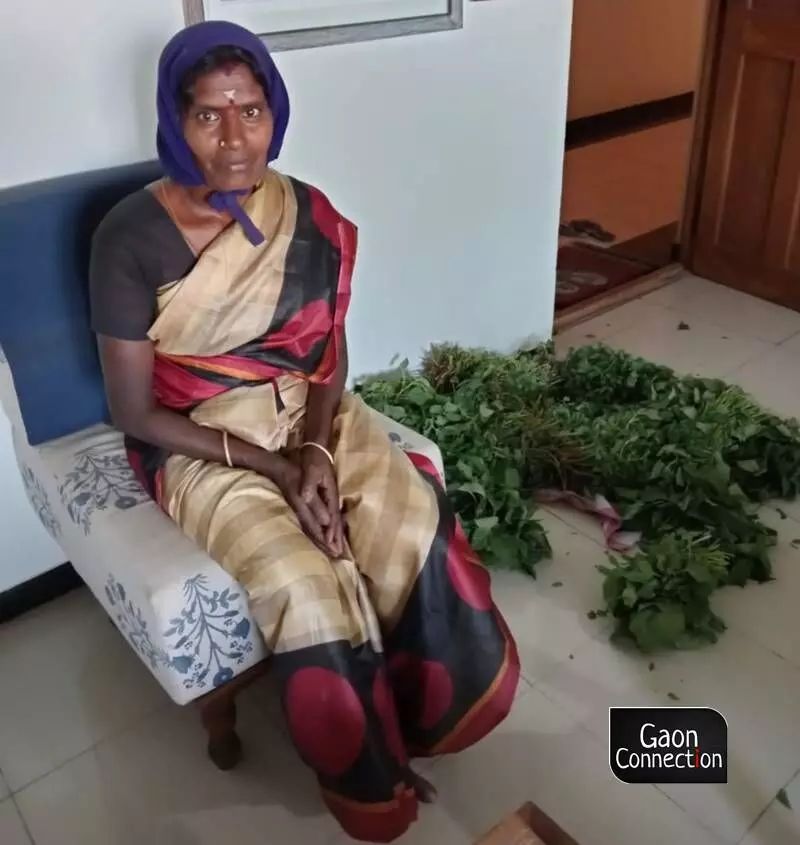
Gomathi sells greens that she grows on 24 cents of land that belongs to someone else.
Shanthi sat outside the Vinayaka temple in Puliakulam. When there were no customers around her pushcart with bananas, I always found her deeply engrossed in a book or newspaper. Diminutive Shanthi wore glasses, and a ready smile. Whenever I stopped to pick up bananas from her, she would demand to know why I had not said hello to her all these days.
Once a year I would give her a sari on Women’s Day. And, she would hug me and give me a big bunch of bananas and refuse to take money for it. For several months I did not meet Shanthi. Because we preferred to take the new flyover that had come up on another side.
But, last week, I saw the banana laden cart, I saw Shanthi’s chair, but someone else sitting on it. I stopped and asked where Shanthi was. Her daughter-in-law who now sold the bananas said, Shanthi had met with an accident and was dead.
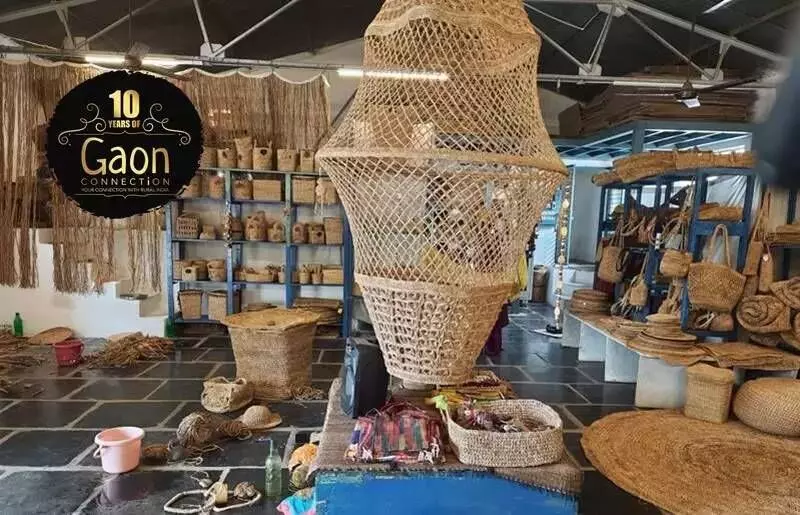
Also Read: The Banana Fibre Weavers of Anegundi
***
Karupaatha is always draped in a brightly coloured sari, a red bindi and bangles on her thin wrists. She is in her 80s I think, missing teeth, having wrinkles and with grey hair. But she is so quick to smile and that buoys me up each and every time I meet her.
Karupaatha is the flower seller in our locality. She says she can’t quite remember when she came to Coimbatore from her village (I must ask her which village). She comes bearing a basket of flowers on her head. She cannot afford to stop working, because her physically disabled husband needs looking after. I don’t know whether she has any family, but there is no bitterness whatsoever in her as she stops to say ‘hello’ and presses a length of malli poovu on me.
“We get by,” she says cheerfully when I ask her how she is doing. I hope in this holy month of Marghazhi in Tamil Nadu, Karupaatha is taking home a little bit more money.
Also Read: Irula tribes in Tamil Nadu make furniture out of the invasive Lantana
***
We hear Gomathi long before we see her. Her strident voice fills the morning air, startling many out of their slumber I am sure. Gomathi is from a village near Madurai and she and her husband Thangamani came to Coimbatore to earn a living 10 years ago.
Gomathi sells greens that she grows on 24 cents of land that belongs to someone else. With the money she makes, she pays a few daily wagers about Rs 200 or so to help out, and with the rest she and her husband manage to live and support their two children, a son Vetrichelvan and a daughter Priyadarshini.
Vetrichelvan studies in class eight and when he is not in school, he helps his mother out by selling the greens. Priyadarshini is too young to do that. Thangamani also runs a tea shop to make the extra buck.
Gomathi leaves home at the crack of dawn, walks about five kilometres to our colony where she loudly announces what greens she has. Her head load alone must be easily 10 kgs. On her feet are flip flops, clearly a few sizes too big for her and every time she steps forward, the slippers move sideways. But, she smiles brightly when she catches sight of familiar faces.
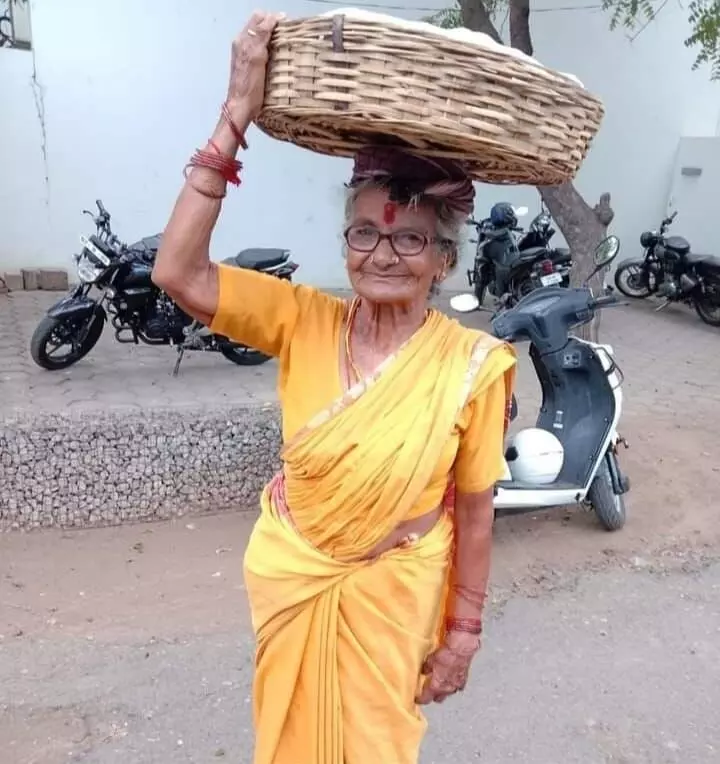
Karupaatha is always draped in a brightly coloured sari, a red bindi and bangles on her thin wrists.
“I gargle with hot water and turmeric every night before bed,” she giggles, when I ask her admiringly how she keeps her voice so strong and melodious. So, from about five in the morning till about nine, Gomathi walks around selling her greens. Then she heads back to tend to the vegetables she will harvest to sell the next day.
Shanthi, Karupaatha and Gomathi… they have NEVER asked a favour, never asked for extra money. Whether I bought anything from them or not, they greeted me like an old friend and more often than not, I came away carrying free bananas, greens and flowers. They gracefully accept whatever they get, and always return the favour with the wares they sell.
These are the phenomenal women. Invisible for most parts, but very much there.
Also Read: Networking for rural healthcare in tribal regions of Tamil Nadu







